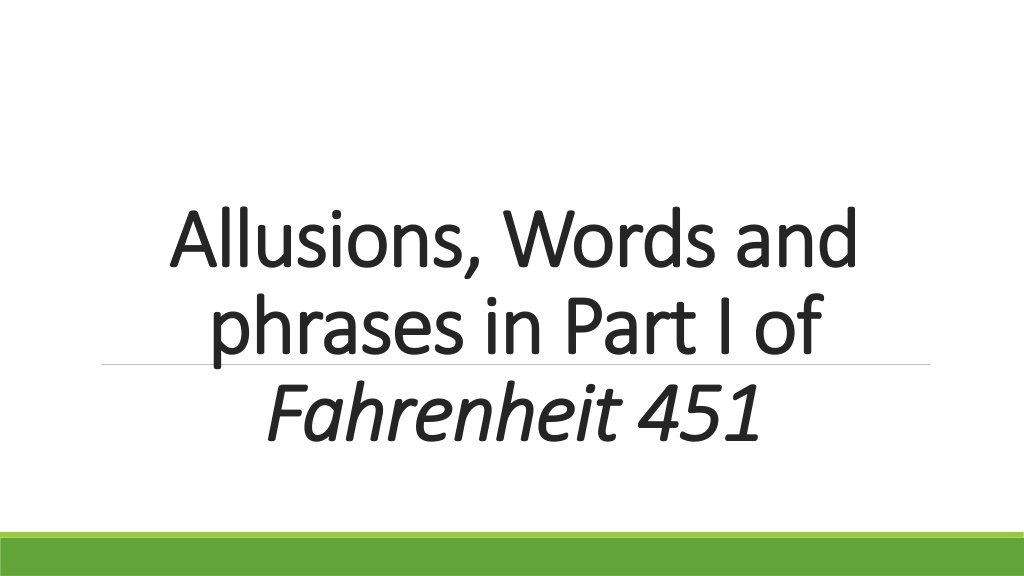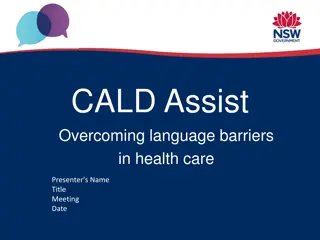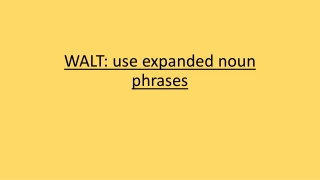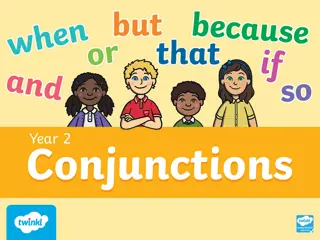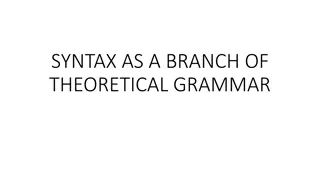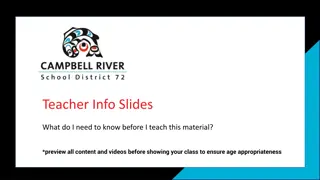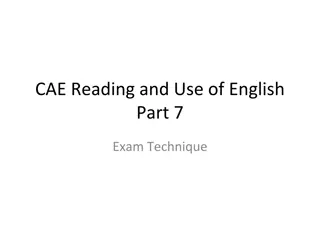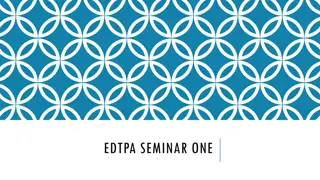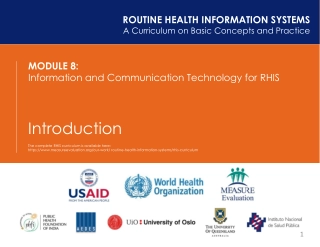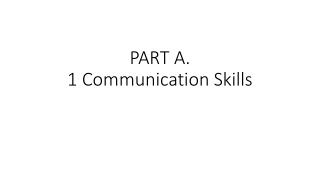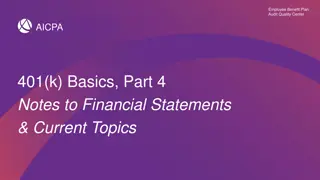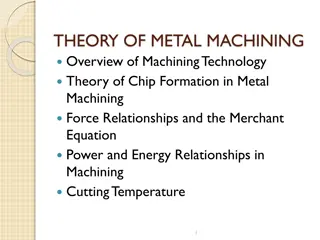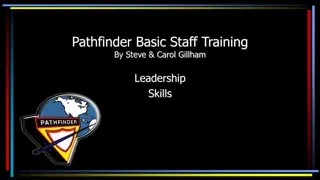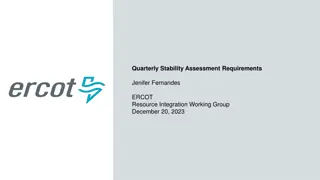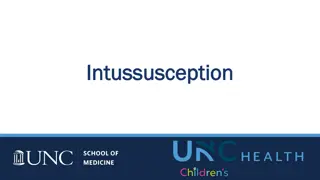Key Allusions and Phrases in Part I of Fahrenheit 451
Explore the significant allusions, words, and phrases in Part I of Fahrenheit 451 through vivid imagery and descriptions of key characters and themes such as the salamander, phoenix, and characters like Guy Montag and Clarisse.
Download Presentation
Please find below an Image/Link to download the presentation.
The content on the website is provided AS IS for your information and personal use only. It may not be sold, licensed, or shared on other websites without obtaining consent from the author. Download presentation by click this link. If you encounter any issues during the download, it is possible that the publisher has removed the file from their server.
Presentation Transcript
Allusions, Words and Allusions, Words and phrases in Part I of phrases in Part I of Fahrenheit 451 Fahrenheit 451
Great Great P Python ython
pigeon pigeon- -winged books winged books
black black beetle beetle- -colored colored helmet helmet
S Salamander alamander
Phoenix Phoenix
Clarisse Clarisse
Guy Montag Guy Montag
B Black lack C Cobra obra
Beatty Beatty
November November 4 4th th
Stoneman Stonemanand Black and Black
Time has fallen asleep in the afternoon Time has fallen asleep in the afternoon sunshine sunshine
Tower of Babel Tower of Babel
A Automatic utomatic R Reflex eflex
our our fingers in the fingers in the dike dike
Allusions, Words and Allusions, Words and phrases in Part phrases in Part II II of of Fahrenheit 451 Fahrenheit 451
We We cannot tell the precise cannot tell the precise moment when friendship is moment when friendship is formed. As in filling a vessel formed. As in filling a vessel drop by drop, there is at drop by drop, there is at last a drop which makes it last a drop which makes it run over; so in a series of run over; so in a series of kindnesses there is at last kindnesses there is at last one which makes the heart one which makes the heart run over. run over. James Boswell
That favorite subject. Myself. That favorite subject. Myself. James Boswell James Boswell
half out of the cave. half out of the cave.
Consider the lilies of the Consider the lilies of the field field
The The Book of Job Book of Job
Cheshire Cat Cheshire Cat
the sheep returns to the fold the sheep returns to the fold. .
trench mouth trench mouth
Additional Allusions from Literature Additional Allusions from Literature Who are a little wise, the best fools be - a line from John Donne s poem The Triple Fool, which Beatty uses to confuse Montag. Truth is truth, to the end of reckoning - a line from Shakespeare s Measure for Measure Act V, Scene i, line 45. They are never alone that are accompanied with noble thoughts - a verse taken from Sir Philip Sidney s Arcadia. Sweet food of sweetly uttered knowledge - a line from Sir Philip Sindey's Defense of Poesy. Words are like leaves and where they most abound, Much fruit of sense is rarely found - a couplet from Alexander Pope s Essay on Criticism. A little learning is a dangerous thing. Drink deep, or taste not the Pierian spring; There shallow draughts intoxicate the brain, and drinking largely sobers us again. - a famous pair of couplets from Alexander Pope s Essay on Criticism, which warns the learner that scholarship requires dedication for maximum effect.
Additional Allusions from Additional Allusions from Literature ( Knowledge is more than equivalent to force - from chapter 13 of Dr. Samuel Johnson s Rasselas . Literature (con t con t) ) He is no wise man that will quit a certainty for an uncertainty - from Dr. Samuel Johnson s Idler . Truth will come to light, murder will not be hid long! - from Shakespeare s Merchant of Venice, Act II, Scene ii, Line 86. Oh God, he speaks only of his horse - a paraphrase from Shakespeare s Merchant of Venice, Act I, Scene ii, Lines 37-38. Oh God, he speaks only of his horse - a paraphrase from Shakespeare s Merchant of Venice, Act I, Scene ii, Lines 37-38. This age thinks better of a gilded fool, than of a threadbare saint in wisdom s school - a couplet from Thomas Dekker s Old Fortunatus. The dignity of truth is lost with much protesting - a line from Ben Jonson s Catiline s Conspiracy, Act III, Scene ii.
Additional Allusions from Literature Additional Allusions from Literature ( (con t con t) ) Carcasses bleed at the sight of the murderer - from Robert Burton s Anatomy of Melancholy, Part I, Section I, Member 2, Subsection 5. Knowledge is power - a line from Francis Bacon s Advancement of Learning. A dwarf on a giant s shoulders sees the furthest of the two - from Democritus to the Reader, Robert Burton s paraphrase from Lucan s Civil War. The folly of mistaking a metaphor for a proof, a torrent of verbiage for a spring of capital - truths, and oneself as an oracle is inborn in us a paraphrase of Paul Valery s Introduction to the Method of Leonardo da Vinci. A kind of excellent dumb discourse - a line from Shakespeare s Tempest, Act III, Scene iii, Line 38. All s well that is well in the end - a paraphrase of Shakespeare s All s Well That ends Well, Act IV, Scene iv, Line 35. the tyranny of the majority - from John Emerich Edward Dalberg-Acton s History of Freedom and Other Essays.
